Everyone goes through periods of temporary sadness. But depression is more than just a melancholy feeling every now and then.
It’s a mental health condition in which a person often experiences diminished energy levels, a loss of interest in previously fun activities, and persistent unhappiness. Without treatment, according to the National Alliance on Mental Illness (NAMI), episodes can last a few months to several years.
If you pursue professional intervention, you can stop negative effects of depression. East Tennessee Behavioral Health provides inpatient and outpatient treatment for people who are living with depression.
Signs & Symptoms of Depression
The signs and symptoms of depression can vary based on a number of individual factors, including a person’s age, personality traits, and medical history.
In general, though, common depression signs and symptoms include:
- Lack of energy
- Significant weight loss or weight gain
- Social withdrawal
- Feelings of hopelessness or helplessness
- Trouble focusing on easy tasks
- Sleeping too much or too little
- Self-harm
- Suicidal ideation
- Changes in eating habits
Depression Causes & Risk Factors
Life events or a physical illness can trigger depression, but there is no singular cause. Experts do believe that there are some common depression causes, though, including:
- Brain chemistry
- Hormones
- Inherited traits
- Biological differences
The onset of depression can occur at any age, but a person would most commonly start to experience these symptoms in their teens, 20s, or early 30s. Typical depression risk factors include:
- Family history of depression
- Personal history of other mental illness
- Abuse of alcohol or other drugs
- Stressful or traumatic events in the past
- Long-standing illness or serious medical concerns
Effects of Depression
There are a number of individual factors that can influence the effects of depression a person may experience. If a person doesn’t receive professional treatment, depression can negatively impact nearly all aspects of their life.
Common effects of depression include:
- Lowered levels of self-esteem
- Physical illness
- Poor performance at work or in school
- Frequent isolation or social withdrawal
- Lack of self-care
- Onset or worsening of other mental illness
- Substance use and/or addiction
- Impaired or damaged relationships with friends and family
Depression can be overwhelming. But by deciding to pursue depression treatment, you can greatly reduce your risk for the pain, grief, and sorrow this condition can cause and set yourself up for a brighter, healthier future.
Depression Statistics
According to NAMI, approximately 21 million U.S. adults — or 8.4% of the population — had at least one major depressive episode in 2020.
The following are some other revealing depression statistics:
- Major depressive disorder is more prevalent in women than in men, according to the Depression and Bipolar Support Alliance (DBSA).
- The prevalence of adults who had a major depressive episode was highest among people ages 18-25 at 17.0%, per the National Institute of Mental Health (NIMH).
- According to Mental Health America, 15.08% of American youths experienced a major depressive episode in the past year, a 1.24% increase from the previous 12 months.
Therapies Used in Depression Treatment
Because depression affects everyone in a different manner, we provide personalized treatment plans at East Tennessee Behavioral Health that account for each patient’s unique background, mental health history, and treatment goals.
After you complete a comprehensive assessment that can help us get to know you better, we’ll finalize a personalized plan for you that may include:
- Basic medical care
- Individual therapy
- Family therapy
- Medication management services
- Group therapy
- Detoxification services if you have a co-occurring substance use disorder
This plan is subject to change based on your individual needs and personal progress. Our staff will work hard to tailor your treatment approach to the methods of healing that will help you. During treatment, your programming may include elements of dialectical behavior therapy (DBT), cognitive behavioral therapy (CBT), motivational enhancement, and other evidence-based interventions.
Benefits of Depression Treatment
Depression is a mental health condition that can cause even the most optimistic person to feel like there’s no light at the end of the tunnel. It can be hard to get out of bed and get through the day without experiencing symptoms.
At our depression treatment place, we’ll work hard to shine light on the brighter outlook you can achieve. Our staff of professionals will be with you every step of the way. The team you work with will try to help you identify the root of your struggles and develop coping skills and strategies to manage your symptoms and improve your life.
Through group therapy, you may also have the opportunity to work with others who are experiencing similar struggles. These sessions help many people understand that they’re not alone on their journey toward better health.
Choosing the Right Depression Treatment Center
Finding a depression treatment center that prioritizes each person as the unique individual they are is essential to having a positive experience.
The best treatment experience is a comprehensive one that starts prior to admission and extends long after discharge. Questions to ask when you’re looking for a depression treatment place include:
- Is the admissions process complicated, or is it designed to get me into treatment quickly?
- Will I receive personalized treatment, or does this facility take a one-size-fits-all approach?
- What type of professionals will I work with?
- Are there multiple levels of care that can help meet my needs?
- What happens when I’m done with treatment? Will I receive additional support?
At East Tennessee Behavioral Health, we will help you determine if our depression treatment center is right for you. If it is, we’ll identify the level of care that best suits you and develop a personalized treatment plan. When you’ve completed treatment, we can refer you to appropriate services that can help you build on your progress in the weeks and months to come.
This content was written on behalf of and reviewed by the clinical staff at East Tennessee Behavioral Health.















